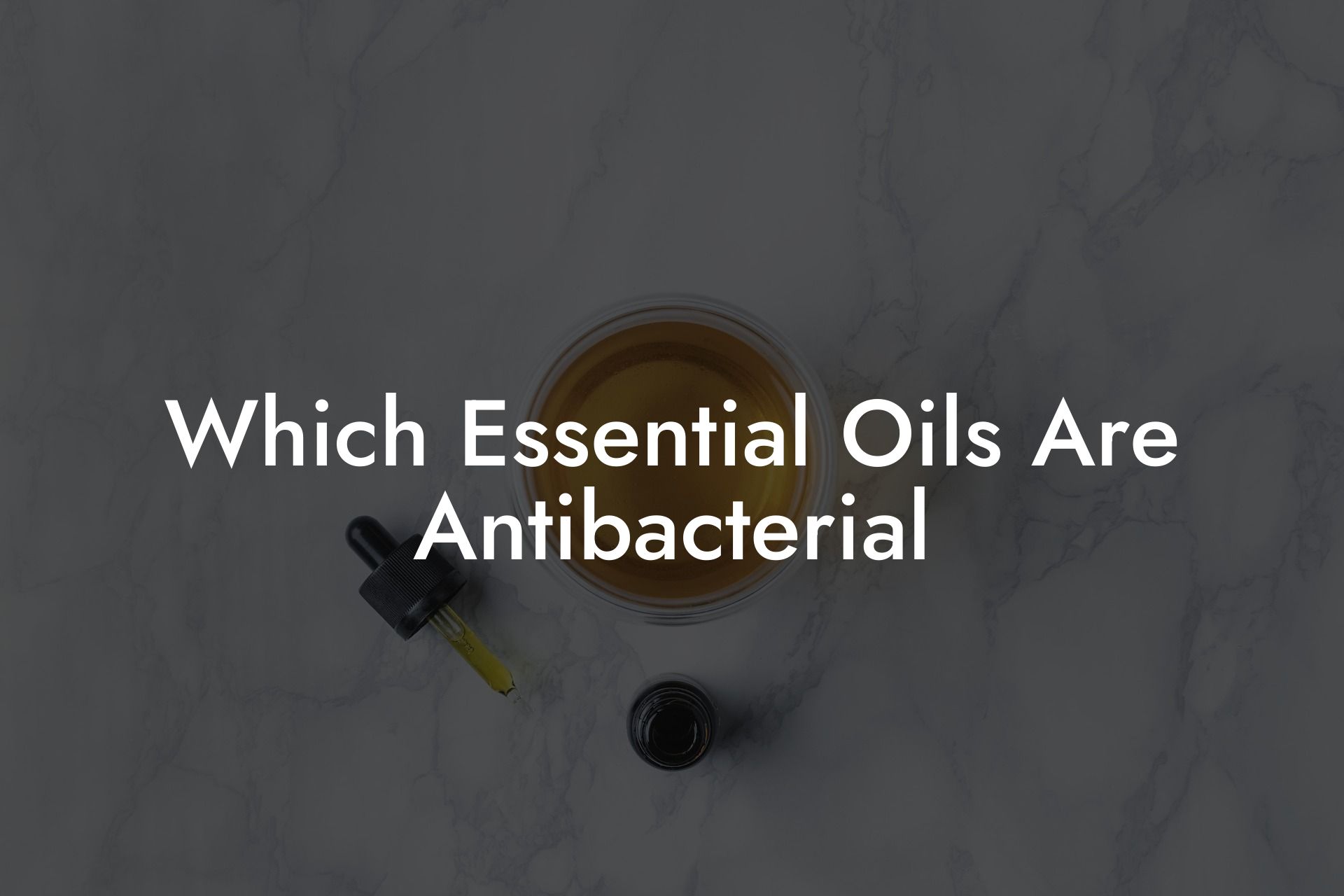Essential oils have been used for centuries for their physical and mental health benefits. One of their many uses includes their potential as natural antibacterial agents, providing an alternative to chemical household cleaners or in personal care. In this article, we will delve into the wonderful world of essential oils and discover which ones are proven to have antibacterial properties.
Table of Contents
A Brief Overview of Essential Oils
Essential oils are volatile aromatic compounds extracted from plants through steam distillation or cold pressing. Each essential oil contains a unique mixture of natural chemicals that give it its distinctive scent and healing properties. They are used in various applications, including aromatherapy, skin care, and natural remedies.
Which Essential Oils Are Antibacterial?
Numerous essential oils have been studied for their antibacterial properties, and research has shown that many of them are effective in inhibiting bacterial growth. Some of the most potent antibacterial essential oils include:
1. Tea Tree Oil
Tea tree oil, derived from the leaves of the Melaleuca alternifolia plant, is well-known for its remarkable antiseptic and antibacterial properties. It has been found to be effective against a wide range of bacteria, including Staphylococcus aureus and Escherichia coli.
2. Lavender Oil
Lavender oil, a popular essential oil in aromatherapy, has been found to have antibacterial properties against various bacterial strains, including Staphylococcus and Streptococcus species. In addition to its lovely scent, using lavender oil may help reduce the risk of bacterial infections.
3. Eucalyptus Oil
Eucalyptus oil, derived from the leaves of the eucalyptus tree, has been traditionally used to treat respiratory infections. Studies have shown that it possesses excellent antibacterial properties against gram-positive and gram-negative bacteria, such as S. aureus.
4. Thyme Oil
The essential oil extracted from the thyme plant is well known for its strong antibacterial activity. Thyme oil is particularly effective against foodborne bacterial pathogens like Salmonella and Listeria.
5. Oregano Oil
Oregano oil, extracted from the wild oregano plant, is one of the most potent antibacterial essential oils. It is effective against a variety of bacteria, including E. coli, Salmonella, and methicillin-resistant Staphylococcus aureus (MRSA).
6. Cinnamon Oil
Cinnamon oil, obtained from the bark and leaves of the cinnamon tree, has a long history of use for its antiseptic and antimicrobial properties. Research has found that it is effective in killing various types of bacteria, including E. coli, S. aureus, and Pseudomonas aeruginosa.
Which Essential Oils Are Antibacterial Example:
If you want to harness the power of antibacterial essential oils in your daily life, you can try making DIY cleaning and personal care products. One simple example is creating a natural surface cleaner using the following recipe:
– 10 drops of tea tree oil
– 10 drops of lavender oil
– 10 drops of eucalyptus oil
– 1 cup of distilled water
– 1 cup of white vinegar
Mix the essential oils, water, and vinegar in a spray bottle, shake well before each use, and get ready to tackle various surfaces in your home with a chemical-free, antibacterial solution. You can also try adding antibacterial essential oils to your homemade personal care products, such as hand sanitizers, soaps, body scrubs, and more.
Armed with this newfound knowledge on antibacterial essential oils, you can now integrate them into your daily life to help protect yourself and your loved ones from harmful bacteria. Make sure to share this article with your family and friends, and explore other informative guides on the Oshu Oils blog to further your understanding of essential oils and aromacology. Lastly, don’t forget to check out the Oshu Oils range of essential oils to find your perfect antibacterial solution.





















